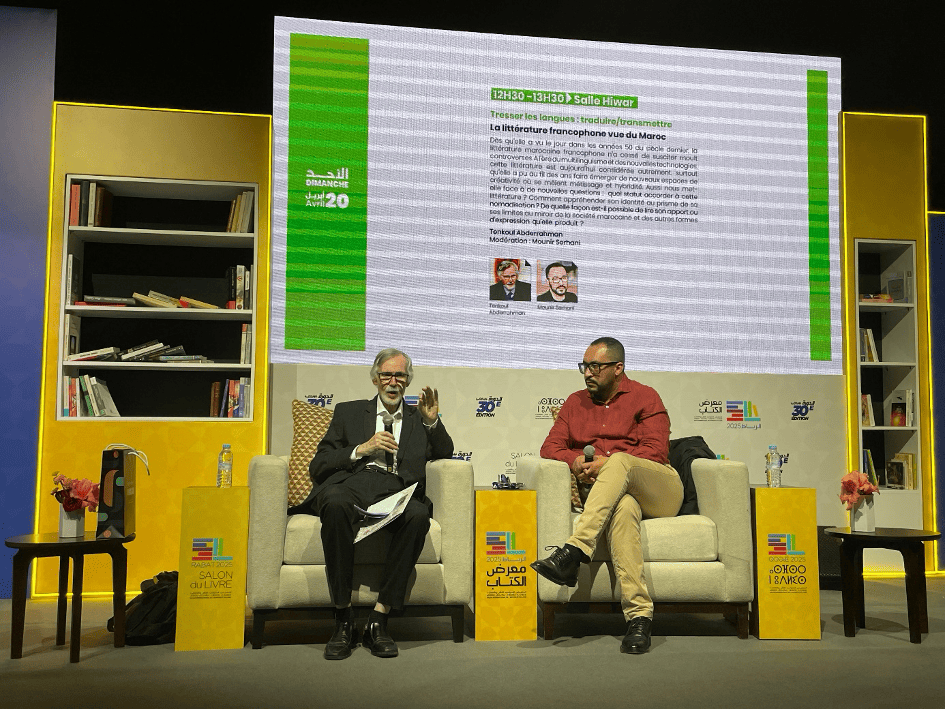
At the International Book Fair in Rabat (SIEL 2025), on Sunday, April 20, a key conference titled "Tresser les langues: traduire/transmettre" brought together Moroccan academic Abderrahman Tenkoul, a specialist in Moroccan francophone literature, and poet Mounir Serhani, who acted as moderator.

At the International Book Fair in Rabat (SIEL 2025), on Sunday, April 20, a key conference titled "Tresser les langues: traduire/transmettre" brought together Moroccan academic Abderrahman Tenkoul, a specialist in Moroccan francophone literature, and poet Mounir Serhani, who acted as moderator.

At the International Book Fair in Rabat (SIEL 2025), on Sunday, April 20, a key conference titled "Tresser les langues: traduire/transmettre" brought together Moroccan academic Abderrahman Tenkoul, a specialist in Moroccan francophone literature, and poet Mounir Serhani, who acted as moderator.
According to Tenkoul, francophone literature in Morocco was seen as an outsider in the 1950s. Driss Chraïbi’s novel “Le Passé Simple” caused a strong reaction. Nationalist voices saw it as a betrayal. Later, writers like Abdellatif Laâbi and Mohamed Khair-Eddine used the French language as a tool of resistance. Through the magazine Souffles, they expressed new cultural ideas and began a literary decolonization.
Tenkoul emphasized that Moroccan literature goes beyond language. Morocco is a multilingual country, influenced by many civilizations. Its Mediterranean location has encouraged openness and exchange. He mentioned writers like Abdelkébir Khatibi and Laâbi, who aimed to reclaim and reshape Moroccan identity. Today’s writers, he said, must face new challenges: how to write about Morocco in the age of digital tools, artificial intelligence, and cultural hybridity.
Each generation, Tenkoul said, has a duty to write Morocco in its own way, but without forgetting the country’s history. “What is a language for a writer?” he asked. In his view, a writer should reinvent language, add something new to it, and speak to the world. But Moroccan writers, he warned, should not simply copy what is written in places like New York or else.
Translation, he reminded the audience, has always played an important role in Moroccan intellectual life. He mentioned Ibn Rochd (Averroes), whose translations helped spread rationalist ideas across cultures. Translation remains a powerful bridge between peoples.
In today’s uncertain world, Tenkoul concluded, literature offers a place of refuge. It helps us understand both ourselves and others. “Language is the home of being,” he said. For him, the Moroccan writer must remain rooted, creative, and open to the world.
